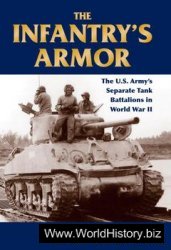The contras were a group of counterrevolutionaries opposed to the ruling Sandinista government in Nicaragua during the 1980s. President Ronald W. Reagan authorized the funding that enabled the formation of the contras.
In Nicaragua the Sandinista National Liberation Front had overthrown the dictatorship of Anastasio Somoza in
1979. Although the new Sandinista government expanded its ties with noncommunist nations, it also strengthened its relationship with Cuba and other nations of the socialist bloc. The Reagan administration viewed this as an indication of further communist expansion in the Western Hemisphere and, therefore, as a threat to U. S. national security. In 1981 the United States suspended economic aid to Nicaragua, and Reagan authorized nearly $20 million for the recruiting, training, and arming of Nicaraguan counterrevolutionaries who would engage in irregular military operations against the Sandinista government. These insurgents, who came to be called contras, operated out of bases on the border areas of Honduras and Costa Rica, and numbered approximately 15,000 by the mid-1980s. They never presented, however, a serious military threat to the Sandinistas, but they did cause millions of dollars in damage to the Nicaraguan economy by attacking local police and military units, farms and cooperatives, shipping, and other civilian targets. The Sandinistas eventually expanded their military and implemented counterinsurgency strategy and tactics, which enabled them to contain and demoralize the contras by the late 1980s.
U. S. involvement with the contras deepened during the mid-1980s. In response to evidence alleging human rights abuses by the contras, Congress passed in 1984 the Boland Amendment that prohibited any direct or indirect U. S. military aid to them. In violation of this law, the Reagan administration in 1985 and 1986 undertook a covert campaign by which a portion of the funds raised through illegal arms sales to Iran were funneled to the contras in Nicaragua. This operation was uncovered in 1986 and the ensuing scandal came to be known as the Iran-contra aeeair. In 1987 Congress voted against supplying any further aid to the contras, and the same year saw the locus of the Nicaragua conflict move from the military to the political sector. The contras formally demobilized in June 1990 under the auspices of the peacefully elected government headed by the National Opposition Union coalition.
See also BusH, George H. W.; Grenada, invasion oE; Latin America; Nicaragua; North, Oliver L.
—William L. Glankler
Cox, Archibald, Jr. (1912-2004) lawyer Archibald Cox Jr., a Harvard Law School professor, author, and attorney, is best known as the special prosecutor whose investigation of the Watergate scandal led to the resignation of President Richard M. Nixon in 1974.
Archibald Cox was born May 17, 1912, to Frances Perkins Cox and Archibald Cox, Sr., in Plainfield, New Jersey, and was the great-grandson of William Maxwell Evarts, the attorney who defended President Andrew Johnson at his impeachment trial in 1868. Cox was the oldest of seven children. He completed his bachelor’s degree at Harvard University in 1934, and graduated magna cum laude in 1946 from Harvard Law School. In 1937 he married Phyllis Ames. Following four years in Washington during World War II, Cox accepted a faculty position at Harvard Law School, specializing in labor law. Under President Harry Truman, Cox served as chair of the Wage Stabilization Board. Under Presidents John F. Kennedy and Lyndon B. Johnson, he served as solicitor general, a position that would later cause President Nixon to question Cox’s motives during the Watergate scandal.
Despite his lack of prosecutorial experience, Archibald Cox was appointed by Attorney General Elliot Richardson in 1973 to investigate the alleged Watergate cover-up and illegal activity in the 1972 presidential campaign. As special prosecutor, a newly created government position, Cox was given a broad mandate with unprecedented investigative independence and authority in this case. After learning of the existence of secretly taped conversations held in the White House, Cox demanded specific tapes be made available to him. Nixon, citing national security issues and claiming executive privilege, withheld the recordings. The U. S. Court of Appeals overrode Nixon and ordered him to surrender the tapes. Nixon offered to submit edited transcripts of the recordings, but his proposal—using Senator John Stennis (D-Miss.) as mediator and limiting any future access to unsubpoenaed tapes and presidential materials—was unacceptable. Nixon then ordered Richardson to fire Cox. Rather than comply with the president’s order, the attorney general, as well as the deputy attorney general, William Ruckelshaus, resigned from office. Solicitor General Robert Bork, as acting attorney general, proceeded to execute Nixon’s mandate. The firing of Cox and the resignations of Ruckelshaus and Richardson became collectively known as the Saturday Night Massacre.
Cox returned to academic life, serving as a visiting professor at Cambridge University and teaching law at Boston and Harvard Universities. Cox also served from 1980-92 as the chair of Common Cause, a citizens’ lobbying group founded in the 1970s that emphasizes campaign finance reform. Cox died in Brooksville, Maine, in 2004.
—Michele Rutledge




 World History
World History









